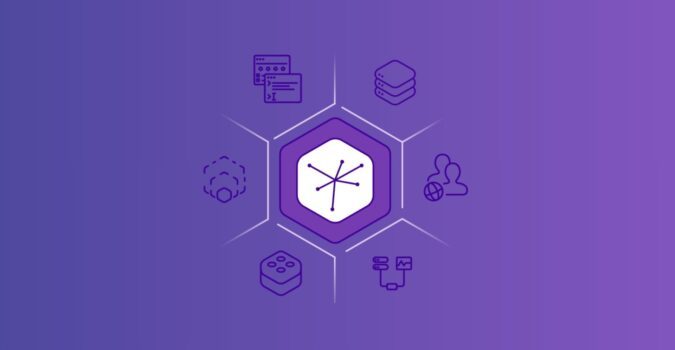How Frameworks Shape the Future of Your App
Choosing the right framework is one of the most strategic decisions in any app development project. It determines everything from your speed to market to how well your product can scale and adapt over time. Whether you’re building a mobile app, a web-based platform, or a fully custom solution, the framework you choose sets the tone for development efficiency, performance, security, and maintainability.
We work with a wide range of technologies to deliver scalable, user-centered software tailored to our clients’ industries and goals. We focus on choosing the right tool for the job, not just the most popular. Here’s our breakdown of the top 10 programming frameworks for app development in 2025. We explain why we use them, what problems they’re best suited to solve, and how they help teams build better products faster.
What Are Programming Frameworks for App Development?
Programming frameworks are collections of pre-written code, libraries, and development tools designed to streamline how developers build, test, and deploy applications. These frameworks provide a foundational structure for coding best practices, reduce redundancy through reusable components, and accelerate development timelines by offering reliable building blocks out of the box. By using frameworks, teams that provide custom app development can focus more on delivering features and business logic rather than reinventing foundational code with every project.
Different frameworks are built for different strengths. Some excel in rendering responsive, interactive user interfaces for web apps, while others are optimized for backend logic, data handling, or mobile app development. Each comes with trade-offs in complexity, flexibility, performance, and scalability. The most effective framework is one that aligns with your specific project requirements, your team’s technical capabilities, and the long-term roadmap for your application.
Choosing the Right Programming Framework for Your App
When selecting a framework for your app, you’re making a foundational decision that will shape how your product performs, scales, and evolves. Each framework offers different strengths, trade-offs, and technical implications. To ensure you choose wisely, consider the following key factors:
- App Type: Are you building a mobile app, a web platform, or both? This determines whether you need a mobile-first framework, a web-focused one, or a hybrid solution.
- Team Expertise: Does your team have experience with certain frameworks or languages? Leveraging existing skills can shorten ramp-up time and reduce development costs.
- Scalability: Can the framework grow with your user base and feature set? Choosing a scalable solution helps prevent costly rewrites as your app gains traction.
- Performance: Will it support responsive, fast, and secure user experiences? High performance is key for retaining users and meeting today’s UX expectations.
- Ecosystem: Does the framework offer community support, libraries, and integrations? A strong ecosystem can accelerate development and simplify integration with other tools and platforms.
Choosing the right framework for your web app development isn’t about hype. It’s about making informed, strategic decisions that align your technology choices with your product goals, your team’s strengths, scalability requirements, and the evolving needs of your end users. The right framework helps streamline development, simplify maintenance, and set your app up for long-term success.
Top 10 Programming Frameworks for App Development
With so many frameworks for custom app development available, choosing the right development software can feel overwhelming. Every option offers a different balance of speed, flexibility, scalability, and community support. To help you navigate the landscape, we’ve curated a list of the top 10 programming frameworks we use most often when building modern mobile and web apps for our clients. These frameworks support fast development, robust performance, and long-term maintainability across industries.
1. React
React is a widely adopted JavaScript library developed and maintained by Meta. It is one of the most popular tools for building dynamic, high-performance user interfaces in modern web app development. React’s component-based architecture enables teams to build modular UIs that are easy to test, maintain, and scale. With a vast ecosystem of third-party libraries and strong community support, React offers the flexibility and efficiency needed for projects ranging from simple websites to complex enterprise platforms.
2. React Native
React Native brings the power and flexibility of React into mobile app development software. It allows developers to use JavaScript to build cross-platform applications that run natively on both iOS and Android devices. React Native is ideal for teams looking to reduce development time and cost while maintaining a native-like experience. Its shared codebase accelerates time-to-market, and with support from Meta and a growing ecosystem, it’s a strong choice for scalable mobile applications.
3. Ruby on Rails
Ruby on Rails, also known simply as Rails, is a mature, battle-tested backend framework known for its “convention over configuration” philosophy. It empowers developers to build custom applications quickly by reducing repetitive tasks and enforcing clean coding standards. Rails is especially useful in projects that require rapid prototyping and fast iteration cycles. We frequently use Rails when custom business logic, database interactions, and robust backend features are core to the project’s success.
4. Salesforce Experience Cloud
Salesforce Experience Cloud is a powerful custom app development framework for building secure, data-driven web portals, customer communities, and partner dashboards. It is designed for organizations that already rely on the Salesforce ecosystem and need to create custom experiences without leaving that environment. Its tight integration with Salesforce CRM, robust user management, and high-level data security make it a go-to framework for enterprise solutions in finance, healthcare, and other regulated industries.
5. Flutter
Flutter is Google’s open-source UI toolkit for building natively compiled applications from a single codebase. It uses the /Dart programming language and is known for its fast rendering engine, which produces smooth animations and high-performance experiences on both mobile and web platforms. Flutter is a great choice for visually rich applications that need to run consistently across devices, and its growing adoption makes it a compelling alternative to traditional native development.
6. Ionic
Ionic is an open-source framework that allows developers to build hybrid mobile applications using familiar web technologies like HTML, CSS, and JavaScript. Built on top of Angular and powered by /Capacitor, Ionic offers a wide array of pre-built UI components, which makes it well-suited for Minimum Viable Products (MVP) and apps requiring broad device compatibility. It’s especially valuable when development speed, budget constraints, rapid prototyping, and cross-platform functionality are top priorities for teams building modern mobile experiences.
7. Angular
Angular is a full-featured front-end framework developed and maintained by Google. It excels at creating large-scale, enterprise-grade web applications that demand strong structure, two-way data binding, and robust dependency injection. Angular is often chosen by teams that need a comprehensive solution with everything included out of the box, from state management to testing tools. Its opinionated architecture supports consistency across large development teams and enables easier collaboration across departments and codebases.
8. Vue.js
Vue.js is a progressive JavaScript framework that focuses on simplicity and approachability while delivering the power needed for building sophisticated applications. Vue is often praised for its clear documentation, ease of integration, flexibility in project structure, and its ability to adapt quickly to evolving requirements. It works well for both small projects and large-scale applications, especially when teams need to iterate quickly, test often, and maintain responsive user interfaces across platforms and devices with consistency.
9. Node.js
Node.js is a runtime environment that enables JavaScript to be used for server-side development. It allows teams to build fast, scalable backend systems using the same language as their frontend. Node.js is non-blocking and event-driven, making it an excellent choice for applications requiring real-time functionality like live chat, streaming, and push notifications. It also supports a vast ecosystem of npm packages that help accelerate development, improve code quality, and enable rapid experimentation in agile environments.
10. .NET Core
NET Core is Microsoft’s cross-platform, open-source development framework designed for building modern, high-performance applications. It supports development in C# and is widely used for enterprise systems that demand reliability, security, and seamless integration with Microsoft services. .NET Core is particularly effective for backend APIs, data processing pipelines, and applications that require long-term maintainability, high availability, and horizontal scalability in enterprise environments.
Together, these ten frameworks represent the most reliable and innovative options available in the app development world today. Each one brings something unique to the table, whether it’s speed, scalability, flexibility, or ecosystem depth, allowing development teams to tailor solutions to the specific needs of each project. When selected with purpose, the right framework can help reduce risk, improve quality, and unlock long-term growth potential.
Putting the Right Framework to Work
These top 10 programming frameworks for app development offer a wide spectrum of capabilities that power today’s digital ecosystems, supporting everything from responsive mobile apps and dynamic web experiences to scalable backend services and secure enterprise platforms. These frameworks shape how apps are built, deployed, and scaled, impacting everything from speed to market to long-term maintainability. Each framework brings a unique combination of strengths in performance, flexibility, community support, and integration potential. Choosing the right one allows you to move faster, reduce technical debt, and stay adaptable to user and business needs.
At LaunchPad Lab, we guide our clients through these critical technology decisions around app development software with confidence. By aligning technical solutions with business goals, user expectations, and industry demands, we help you avoid one-size-fits-all solutions and build with intention. Our team blends hands-on engineering expertise with product strategy to ensure your app is built on a future-proof foundation that evolves with your users and scales with your business.
Whether you’re launching your first product or expanding an enterprise system, choosing the right programming framework can be the difference between growing painlessly or hitting avoidable roadblocks. Let’s explore how we can help you make the right call and turn your vision into a high-performing, modern digital product that lasts.



